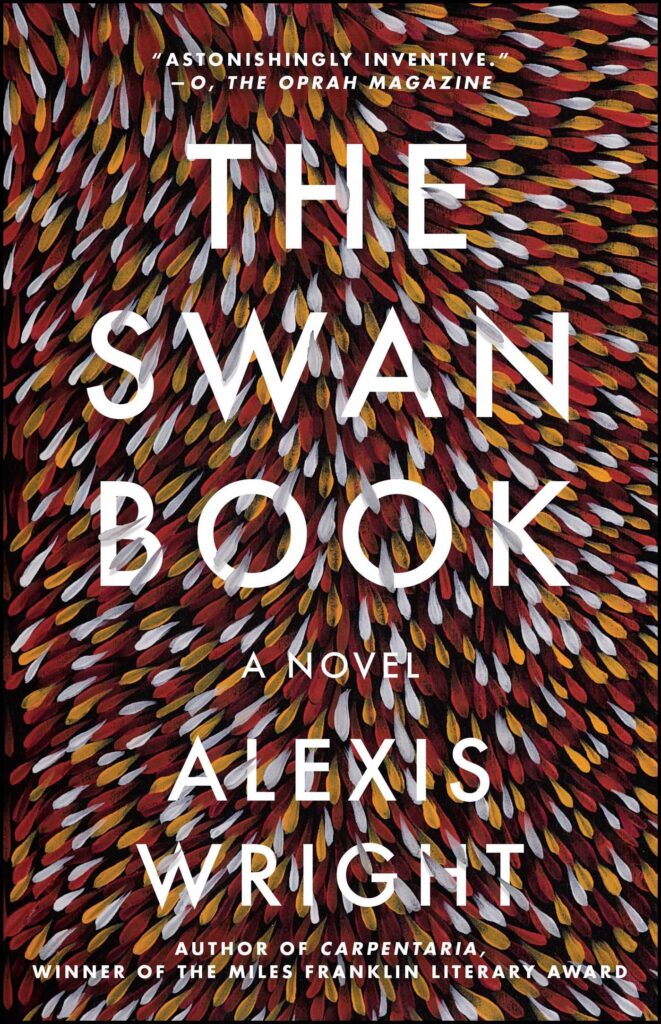A Mathematical Formula for Continuing
I’m asking for a new geography,
something beyond the spiritual.
Tell me again, about that first
drive up Appalachian slopes
how you knew on sight these hills
could be home. I want
A Mathematical Formula for Continuing
I’m asking for a new geography,
something beyond the spiritual.
Tell me again, about that first
drive up Appalachian slopes
how you knew on sight these hills
could be home. I want
This month we’re honored to bring our readers an excerpt from MARY JO BANG’s new translation of Dante’s Paradiso, out soon from Graywolf Press.
From Paradiso: Canto XI
The first eighteen lines of this canto are Dante’s elaboration of human difference, his lament over the failure of some humans to realize their gifts, and an exultation for the opportunity he’s been given—which is to enter Heaven before he has died.
Thomas Aquinas’s clarification of “where they fatten up” begins at line 22 and continues without interruption until the end of the canto. In lines 124 to 126, Thomas complains that Saint Dominic’s flock, the Dominican friars, are showing signs of ambition and greed, seeking honors and offices. They are wandering away from the tenets of the order, which are to live a life of humility and self-sacrifice. In lines 137 to 139, he says, “You’ll see what has splintered the tree, / And how the remedy for that can be deduced from // ‘Where they fatten up, if they don’t lose their way.’” The tree is the Dominican order, and it has been scheggia (“splintered” or “chipped away at”) because so many of the sheep have strayed. If the monks and clergy remain true to the principles set out by Saint Dominic, they will be enriched with the “milk” of spiritual nourishment and “fatten up” the way sheep are meant to.
Throughout the Divine Comedy, Dante is concerned with the ways in which selfishness destroys the social fabric. He details how people pay for that selfishness in Hell or by having to trudge up the seven terraces of Mount Purgatory. But Dante isn’t only interested in what happens after death, he is also talking about how we live while on earth. His life was destroyed by the petty grudges of partisan politics. As an exile, he was under constant threat of death. He takes great risks in writing his poem because he hopes that by addressing the greed and megalomania that is destroying Italy, he can help put a stop to it. He also knows that this is not a time-limited problem but a timeless one, which is why he wrote the poem in the vernacular—so that, unlike poems written in literary Latin, it would change over time. He said he was also writing his poem in the vernacular so that it could be read by everyone. That is why I translated the poem into the American vernacular.
—Mary Jo Bang
Transcript: Lucas Schaefer Podcast.
LUCAS SCHAEFER speaks to managing editor EMILY EVERETT about his story “Tuesday,” which appears in The Common’s brand new spring issue. “Tuesday” is an excerpt from his novel The Slip, out June 3 from Simon & Schuster; both center on a motley cast of characters at a boxing gym in Austin, Texas. Lucas talks about the process of writing and revising this story and the novel as a whole, which started over a decade ago as a series of linked short stories. Lucas also discusses how the novel’s central mystery came together, what it was like writing with humor and in so many voices, and how his own experience at an Austin boxing gym inspired the story and its characters.

Curated by SAM SPRATFORD
The summer months, with their sprawling days, coax us to explore new literary worlds. If you’re not reading Issue 29—which features short stories from Hawai‘i, Kenya, Baton Rouge, and an Austin boxing gym—these recommendations from its contributors TERESE SVOBODA, NICOLE COOLEY, and BILL COTTER will help to revive the childhood magic of summer reading. Read on to discover poetry and prose titles that give permission, immortalize, and remind us how “fiercely beautiful” words can be.
 |
Molly Giles’ Lifespan and Alexis Wright’s The Swan Book; recommended by Issue 29 contributor Terese Svoboda
Molly Giles’ 2024 memoir, Lifespan or the novel The Swan Book published in 2013 by Alexis Wright? The first is a perfectly wrought, very moving series of flash pieces of a life experienced above, under, around, and on the Golden Gate Bridge. The second is a wildly inventive, messy novel about the love of Australian black swans by a rebellious woman abducted from a swamp to be the wife of the Australian president. I won’t choose.
When the whales wash up on shore, my friend grieves. I feel it too, but it feels further away. Deep in me, treading water, legs furiously churning under the surface. The first whale washes up on the oceanfront, just off the boardwalk. People drive out to stare at it. Its dark wet form deflates into the sand. I don’t drive to find it but think of it all day.
I scroll through the Facebook comments that claim it’s all the fault of the offshore windmills, the sonic waves mapping the ocean floor pummeling through the ocean. Everybody seems to have watched the same hoax-y documentary funded by the oil industry. But of course, it’s the boats. The whales scarred and torn up by container ships. 165,000 tons of steel running into migration paths.
Some of The Common’s Arabic fiction contributors, MARYAM DAJANI, ESTABRAQ AHMAD, and ISHRAGA MUSTAFA HAMID, made virtual appearances at the Sant Jordi Book Festival last week! The hybrid celebration, sponsored by the eponymous Sant Jordi in New York, is held annually in New York City to raise awareness of literature in translation, and pays homage to the famous Sant Jordi Book Festival in Barcelona, where the streets are lined with bookstands and flower stalls in honor of “the St. Valentine’s day of Catalonia.” The Farragut Fund for Catalan Culture in the United States sponsors the festival and is led by MARY ANN NEWMAN, a renowned Catalan translator and contributor to TC’s Issue 28 portfolio of Catalan women’s literature in translation.
It might be too late to grab a book and a rose, but you can get a feel for the beautiful festival by checking out the readings of Dajani, Ahmad, and Hamid’s stories below—which includes a sneak peek at our Issue 29 Amman portfolio, launching next week!
Curated by SAM SPRATFORD
The long New England winter is finally thawing, and here at The Common, we’re gearing up to launch our newest print issue! Issue 29 is full of poetry and prose by both familiar and new TC contributors, and a colorful, multimedia portfolio from Amman, Jordan. To tide you over, Issue 29 contributors DAVID LEHMAN and NATHANIEL PERRY share some of their recent inspirations, and ABBIE KIEFER recommends a poetry collection full of the spirit of spring.

Henry James’ short works; recommended by Issue 29 contributor David Lehman
I’ve been reading or rereading Henry James’s stories about writers and artists: “The Real Thing,” “The Lesson the Master,” “The Death of the Lion,” “The Tree of Knowledge,” “The Figure in the Carpet,” “The Aspern Papers,” et al. His sentences are labyrinthine, and you soon realize how little happens in a story; the ratio of verbiage to action is as high as the price-earnings ratio of a high-flying semiconductor firm. Yet we keep reading, not only for the syntactical journey but for the author’s subtle understanding of the artist’s psyche—and the thousand natural and artificial shocks that flesh and brain are heir to.
Author’s Note:
Cold War divided Berlin haunted me growing up because it was a place where history was unavoidably visible, and when I lived there for two-and-a-half years as a student in the 1990s, I was always watching and trying to document the city’s rapid changes after the Wall fell. In 2022 a cousin found an advertisement on Ebay from circa 1939 that showed images of the Potsdamer Platz S-Bahn station from my great-grandfather’s glass factory in Waldenburg (now Wałbrzych, Poland). I’m still processing what it means to have my family history connected to a place that is a central, broken image of Berlin and so crucial to the imagination of the Cold War, particularly at a time when we in the U.S. are (or should be) thinking about what the world looks like when democracy yields to authoritarianism.

Photo courtesy of author.
Berlin, Germany
Potsdamer Platz, Berlin, April 1939
We were successful in securing major commissions—for the Reichsbahn–
underground station Potsdamer Platz and Anhalter–Bahnhof—and in
fulfilling them on time. Such large-scale projects are crucial for breaking
fresh ground for sales of Opaxit glass.
—Annual Report of the Schlesische Spiegelglas Manufaktur
Carl Tielsch G.m.b.H., 1938
JEHANNE DUBROW is the author of ten poetry collections and three books of creative nonfiction. After twenty years in the U.S. Navy, her husband recently completed his tenure as an officer, and this transformation led Jehanne to write Civilians, the final book in her military spouse trilogy, a sequence that began with the publication of Stateside in 2010 and continued with Dots & Dashes in 2017.
Novelist, poet, and Marine veteran spouse VICTORIA KELLY sat down with Jehanne to discuss Civilians, which confronts pressing questions about marriage, transitions, love, and war. Though they have known each other virtually for over a decade—as two members of the very small literary community of military spouse writers—this was the first time they connected face-to-face.

Victoria Kelly (VK): Your new book Civilians is the final volume in your trilogy about the experience of being a modern military spouse. Can you give us some background on your family’s experience with the military?
Jehanne Dubrow (JD): I’m the daughter of two U.S. Foreign Service Officers. I grew up in American embassies overseas. To be a diplomat is to be a civil servant; so, I thought I understood—through my parents’ work—what it means to serve.
Poems by CATHERINE-ESTHER COWIE
Having made both poetry and fiction contributions to TC, the multitalented Catherine-Esther Cowie returns to us this month with highlights from her debut poetry collection Heirloom, forthcoming from Carcanet Press on April 24, 2025.
Publisher’s Note
Moving from colonial to post-colonial St. Lucia, this debut collection brings to light the inheritances of four generations of women, developing monologues, lyrics, and narrative poems which enable us to see how past dysfunction, tyranny, and terror structure the shapes of women’s lives, and what they hand down to one another.
Uneasy inheritances are just the starting point for this debut’s remarkable meditations: Should the stories of the past be told? Do they bring redemption or ruin? What are the costs of saying what happened? Beguiling and cathartic, Catherine-Esther Cowie’s powerful, formally inventive poems reckon with the past even as they elegize and celebrate her subjects.